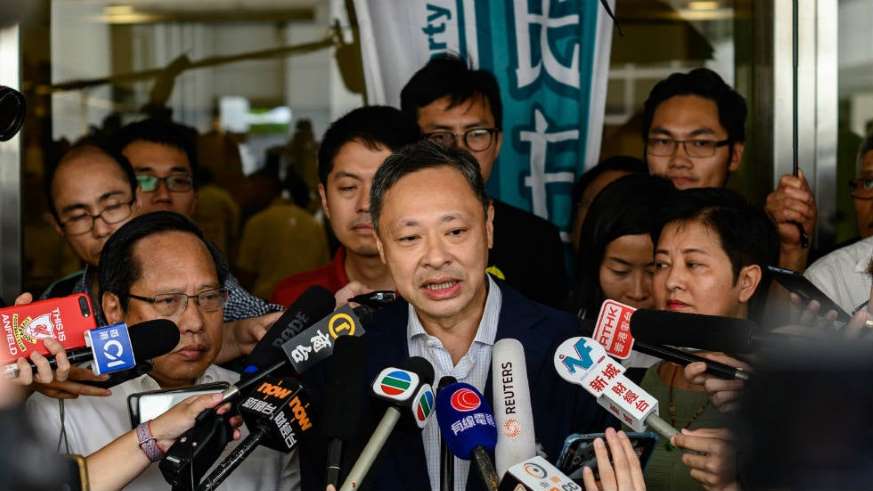A court sentenced Tai to 16 months in prison last year for his role in the protests, but the professor was granted bail in August, pending an appeal.
The HKU governing council’s ruling to dismiss Tai as an instructor contradicts a previous decision by its senate, which said there were insufficient grounds to remove Tai from the institution despite what it alleged to be misconduct, the BBC reported.
Still, local media reported 18 council members voted for his removal, while two were against the ruling.
If Tai tried to contest the university’s decision, he would have to appeal through the institution’s chancellor – Hong Kong Chief Executive Carrie Lam – or through a judicial review, the South China Morning Post reported.
The Hong Kong-Beijing Liaison Office commended the university’s removal of Tai, saying, “The University of Hong Kong’s decision to fire Benny Tai is a move that punishes evil and praises the virtuous.”
The liaison office represents Beijing’s government in Hong Kong and has accused Tai of attempting to launch a revolution. Tai aided in organizing opposition primaries, attracting hundreds of thousands of voters to engage in the upcoming elections to Hong Kong’s parliament.
Local media reported that the elections slated for September could be postponed due to COVID-19. The government has reportedly come to a decision about this year’s election but has held out on a formal announcement.
The push to remove Tai from HKU comes just weeks after China adopted its National Security Law, granting the government in Beijing more control over Hong Kong, a once semi-autonomous financial hub.
Changes under the new law include criminalizing secession, acts of treason, sedition and subversion. However, critics and protesters of the law in Hong Kong argue the terms are loosely drawn in order to infringe upon the individual liberties of the city’s residents.
MSN

